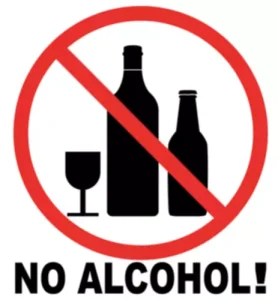
Many people struggle with controlling their drinking at some point in their lives. Millions of adults in the United States have alcohol use disorder (AUD), and approximately 1 in 10 children live in a home with a parent who has AUD. Recovery can take a long time, so you may need ongoing treatment. You doctor also can refer you to a treatment center or experts who can help. Long-term use and abuse of alcohol can lead to even more challenges, including alcoholism, as the person is unable to control alcohol use despite negative consequences.
When Is It Time for Treatment?
Some may have an increased ability to manage co-occurring mental or medical conditions alongside addiction. Other programs may offer specialized tracks for specific populations, such as members of the LGBTQ+ community, men- or women-only groups, and veterans. Treatment for alcoholism often involves a combination of therapy, medication, and support. If you think you might have an alcohol use disorder or if you are worried that your alcohol consumption has become problematic, it is important to talk to your doctor to discuss your treatment options.
How can I prevent alcohol use disorder?
Alcoholism, also known as alcohol addiction, is a chronic disease of the brain that’s characterized by compulsive decision-making, impulsive behavior and relapse. It’s triggered by genetic and environmental factors, and it causes biological changes in the brain that make abstaining from alcohol nearly impossible without medical treatment. Under the direction of licensed therapists or counselors, behavioral therapies involve psychological strategies to modify drinking behaviors. The therapy goals are to develop the skills needed to manage your habits, build social support, set and work toward realistic goals, and deal with or avoid things that trigger drinking. In fact, the consumption of alcohol by pregnant women is the leading cause of preventable birth defects in the U.S., and it can cause a particular constellation of problems called fetal alcohol syndrome. For people who have alcohol use disorder, stopping their drinking is an important first step.

What Are the Types of Treatment for Alcohol Use Disorder?
Ask different programs if they offer sliding-scale fees—some programs may offer lower prices or payment plans for individuals without health insurance. Certain medications have been shown to effectively help people stop or reduce their drinking and avoid a return to drinking. The good news is that no matter how severe the problem may seem, most people with AUD can benefit from some form of treatment. Many others substantially reduce their drinking and report fewer alcohol-related problems.
- Like with all drugs, long-term alcohol abuse creates changes in the brain’s biochemistry.
- There is no quick fix or “cure” for alcohol addiction, but it can be overcome and effectively treated with the help of professional treatment programs.
- For more information on a return to drinking, see An Ongoing Process.
- This guide is written for individuals—and their family and friends—who are looking for options to address alcohol problems.
- Alcoholism, also known as alcohol addiction, is a chronic disease of the brain that’s characterized by compulsive decision-making, impulsive behavior and relapse.
- In addition to getting professional treatment and support, there are things that you can do to help feel better and improve your chances of recovery.
Is It Safe to Drink Rubbing Alcohol?
An alcohol use disorder is a chronic brain condition in which a person loses the ability to control their alcohol use, even when faced with social, professional, or health consequences. Alcohol misuse can cause severe and permanent changes in the brain, which make it difficult to stop drinking on your own. “Is there a cure for alcoholism” is a common question among many, including those dealing with addiction as well as loved ones and friends who might be trying to help someone with the disease.

If you or a loved one is struggling with AUD, make an appointment with a primary care provider such as a medical doctor or nurse practitioner. People with severe AUD who have used alcohol long-term may experience severe withdrawal symptoms that require medical evaluation and treatment. A healthcare provider can evaluate the AUD severity and its health impacts, refer you to specialists, and determine the appropriate treatment. Alcoholism and its symptoms can be successfully managed with effective treatment. It’s important to note, however, that the most effective treatment for alcoholism will vary for each individual. In fact, while in recovery, an alcoholic’s brain will create new neural pathways to help them experience pleasure from activities other than drinking.

Alcoholism, an informal term used to describe an alcohol use disorder (AUD), can be successfully treated, but using the term “cured” can lead to misunderstanding. Take a look at the Alcohol Abuse Screening Quiz to see how symptoms compare. can alcoholism be cured This is an example of a mental obsession – a thought process over which you have no control. You, nor your loved one, are under any obligation to commit to a Legacy Healing Center treatment program when calling the helpline.
What are the risk factors for alcohol use disorder?
- If you have any of these symptoms, alcohol may already be a cause for concern.
- It may help to seek support from others, including friends, family, community, and support groups.
- It may also be helpful to determine whether the treatment will be adapted to meet changing needs as they arise.
- Many years ago, those who struggled with alcohol addiction or dependency were considered to be people with weak morals who were missing the strong characteristics needed to overcome their struggles.
Most people know about the damage that the heavy consumption of alcohol causes to their liver. But what they may not realize is that the brain is seriously affected by it, too. Brain scans also show the biological impact of chronic alcohol use, according to the National Institute on Alcohol Abuse and Alcoholism. CT scans have revealed that atrophy, or wasting away of cells, commonly occurs in the brains of alcoholics. The earliest damage occurs in the frontal lobe of the brain, which is responsible for memory, decision making, behavior and executive function. The terms chronic disease or chronic condition have multiple definitions.

E-Health Alcohol Treatment Tools*
Inpatient programs are often well-suited for people with severe alcohol addiction, complicated medical histories, multiple mental health conditions, or little support at home. After a person is stabilized in an inpatient rehab program, it is often beneficial to transition to an outpatient program for continued recovery. Once a formal program at any level is completed, involvement in an aftercare program or support services is highly recommended. AUD is a brain disorder and disease that occurs when people cannot stop or control their drinking despite adverse effects on relationships, work or school, finances, and overall health. People who drink too much alcohol are at risk of developing a host of health conditions and disorders including certain types of cancer, liver disease, and heart disease.
Charitable Care & Financial Assistance
If you’re concerned that someone you know may be struggling with alcoholism and don’t know where to turn, Nexus is here to help. Our trusted and compassionate recovery advisors will provide a free, confidential consultation so you can decide on a course of action for treatment. Like with all drugs, long-term alcohol abuse creates changes in the brain’s biochemistry. To learn more https://ecosoberhouse.com/ about alcohol treatment options and search for quality care near you, please visit the NIAAA Alcohol Treatment Navigator. Severity is based on the number of criteria a person meets based on their symptoms—mild (2–3 criteria), moderate (4–5 criteria), or severe (6 or more criteria). Many people addicted to alcohol also turn to 12-step programs like Alcoholics Anonymous (AA).
